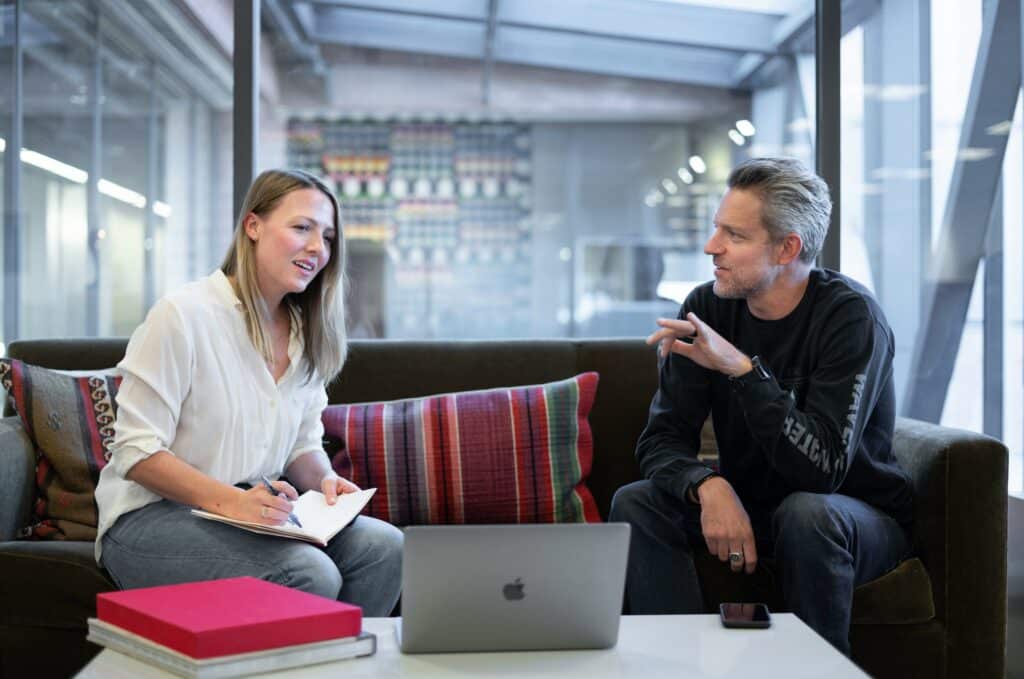Motivational interviewing addiction therapy serves as a foundation to help people to develop the ability to initiate change in their lives.
To determine whether you might find any benefit from this approach to counseling at a California rehab, we’ll kick off with a motivational interviewing definition.
What is Motivational Interviewing?
Clinical psychologists Stephen Rollnick and William R Miller co-created MI (motivational interviewing).
This counseling approach is client-centered and directive, aiming to elicit change, even in the face of ambivalence toward change.
The aim is to guide clients to firm up their strengths and aspirations, helping them to better evoke personal motivation for change. When it comes to decision-making, MI promotes client autonomy.
Motivational interviewing therapy is grounded on the following core assumptions:
- How you speak to people is potentially equally important as what you say
- If you feel someone is listening to you and also understanding what you’re saying, this can be a crucial component of the process of change
- People will only change their behaviors when they feel ready to, and not when someone tells them to change
- The solutions you find for yourself are liable to be the most effective, and also the most enduring
- If you have a problem, you have the answer to solve that problem, even if you need guidance to find that answer
If you engage with motivational interviewing as a part of your recovery program, you’ll encounter the following four principles of MI, often stylized as RULE:
- R: Resist the temptation to use didactic means to initiate change
- U: Understand that the client’s reasons for change will be responsible for eliciting those changes, not the practitioner’s reasons
- L: Listening is key
- E: Empower the client to see they can change their behaviors
The skills of motivational interviewing, as well as the principles it follows, can be used in many applications. That said, MI can be especially valuable in the following situations:
- If you are ambivalent or have mixed feelings about change
- When you’re not sure you want to make behavioral changes
- If you question your confidence to make the required changes
- When you are unsure of the direct benefits of making changes

Motivational Interviewing Techniques
The stages of motivational interviewing can be summed up according to four fundamental processes:
- Engaging: Foundational to MI, the goal of engaging is to establish a meaningful and productive working relationship for the collaborative process ahead
- Focusing: The client and counselor agree on a shared purpose, allowing the practitioner to initiate a conversation about change
- Evoking: The clinician helps the client to understand why they want to change, helping them to resolve any ambivalence toward change
- Planning: In the planning stage of motivational interviewing therapy, the practitioner will help the client to develop a plan for change based on their own insights. The planning stage is optional, and it’s not always necessary
The flow of the ongoing conversation throughout motivational interviewing therapy adheres to these processes, although the process is not necessarily linear.
Rather than an intervention, motivational interviewing is instead framed as a method of communication. MI can be used in isolation or in combination with other approaches to treatment.
There are four core communication skills that help to strengthen and support the process of initiating a conversation about change, sometimes known as OARS:
- Open-ended questions: The benefit of open-ended questions is that the practitioner can learn more about the client’s ideas about change. This type of question also underscores the collaborative nature of MI, and can be useful in evoking the client’s reasons for change
- Affirming and validating: By recognizing the patient’s strengths and commenting on them, affirming takes place. This can build rapport between the client and the practitioner
- Reflective listening: Reflective listening involves the practitioner repeating what the client says in the form of a statement rather than a question, helping to build engagement
- Summarizing: Summarizing, when combined with reflective listening, allows clients to hear themselves talking about change. It then becomes part of the process
OARS is used in motivational interviewing as a construct for eliciting talk about change. Once the client identifies and resolves any ambivalence toward change, it is possible to move forward and execute change.
Examples of Motivational Interviewing Questions
Here are three examples of open-ended questions used in motivational interviewing:
- “What do you feel defines your relationship with your parents?”
- “How can I help you with your substance abuse?”
- “What would be the benefits of stopping drinking, and what would be the drawbacks?”
Here are three examples of affirmations used in motivational interviewing:
- “You’re clearly very resourceful.”
- “That’s a great suggestion.”
- “I enjoyed our conversation today.”
Here are three examples of reflective listening used in motivational interviewing:
- “So you feel that…”
- “You are wondering if…”
- “It seems like you…”

When is Motivational Interviewing Useful?
Motivational interviewing can be used to manage certain physical health conditions like asthma, diabetes, and heart disease.
MI is also frequently used to address both alcohol use disorder and substance use disorder.
This form of intervention helps you to become more motivated to change behaviors that are preventing you from making healthier lifestyle choices. Beyond this, motivational interviewing can serve as a foundation and preparation for other forms of therapy.
Research shows that motivational interviewing is effective with those who start treatment unprepared and unmotivated for change. Equally, MI can be beneficial for those who are hostile or angry. Even if people in these situations are not ready to commit to or implement change, MI can help to move them through the vital emotional stage of change.
What is the Spirit of Motivational Interviewing?
This intervention should be implemented with a specific spirit. The spirit of MI should be collaborative and evocative, while always honoring client autonomy.
- Collaboration not confrontation: With some therapeutic approaches, the counselor assumes a confrontational stance, imposing their point of view about behaviors. With MI, by contrast, a partnership is formed between client and counselor. This allows for a more trusting relationship to develop.
- Evocation not education: A good motivational interviewing counselor will draw out the client’s ideas rather than imposing their opinions. This is grounded on the idea that motivation to change is found within, not from an external source like a counselor.
- Autonomy not authority: The self-empowering approach of motivational interviewing means the client must take the required actions to change their behavior. The change cannot be demanded by the counselor.

Addiction Treatment at Renaissance Recovery
If you are grappling with alcohol use disorder, substance use disorder, or co-occurring disorder, we have a variety of evidence-based treatment programs here at Renaissance Recovery’s California and Florida rehab programs.
Using a combination of medication-assisted treatment, psychotherapy, and counseling, we’ll help you create a solid foundation for ongoing sobriety.
You can also expect access to the following:
- MI (motivational interviewing)
- CM (contingency management)
- Vocational development
- Holistic therapies
- Adventure therapy
If you need more support and time commitment, we offer both IOPs (intensive outpatient programs) and PHPs (partial hospitalization programs) to meet those needs.
To get started, reach out to admissions today at 866.330.9449.









